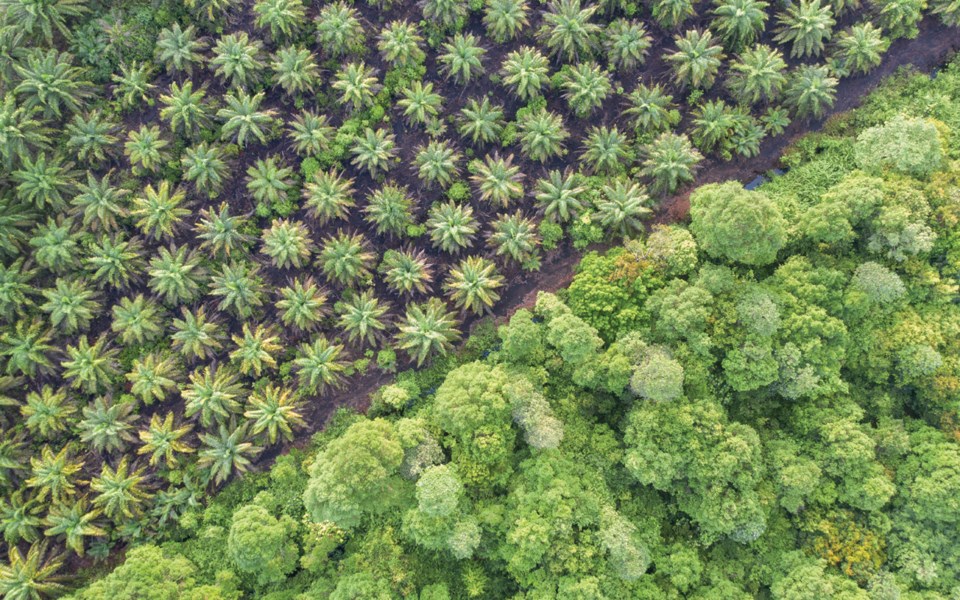Palms have long held stately sway throughout the world, as symbols, as cultural signifiers, and more. Take this coming Sunday, for instance. It’s Palm Sunday, a moveable feast day marking the start of Holy Week, and an important day for people who follow Western Christianity, including here in North America and Europe, as well as the Philippines, India and even Syria. For followers of Eastern Christianity—like members of Eastern Orthodox churches in Ukraine and Russia—Palm Sunday is celebrated the following Sunday, April 17.
Falling on the Sunday before Easter, Palm Sunday marks the triumphal entry of Jesus into Jerusalem after people believed he’d raised Lazarus from the dead. Traditionally, Christian churches bless and distribute palm branches or pieces of them to represent the palm fronds joyfully scattered on the streets to welcome Jesus.
Palms also symbolized eternal life to ancient Egyptians, rejoicing in Judaism, and victory and triumph to the ancient Greeks and Romans. All very upbeat and spring-like in various epochs and cultures sifting through the sands of time.
Although I don’t count myself amongst the Christian faithful (I’m more likely Buddhist or humanist or animist, or some such combo), I still appreciate the significance of Palm Sunday. But here’s my idea for a joyful new world. Given the symbolic powerhouse of the mighty palm, I say let’s rethink it on Palm Sunday each year—and every time we shop thereafter—for one very good reason: Palm oil has become a huge global scourge, destroying so much tropical rainforest that it’s one of the biggest contributors to our climate disaster, to the sixth wave of extinction, and to what will only be the increase of zoonotically-spread diseases like COVID.
Palm oil is nothing new. Oil palms are native to Western Africa where they’ve provided oil since ancient times. The plants were introduced to the Indonesian island of Java by Dutch colonizers, and later to Malaysia by their British counterparts. What is new, and happening more and more each year, is how much palm oil is used and how many more rainforests are being destroyed. Today, the Biggest Bad Boys of palm oil production, according to the 2021 Index Mundi, remain Indonesia at over 44.5 million tonnes of palm oil a year, and Malaysia, at about 18.7 million tonnes.
This isn’t the first time I’ve written about the dreadful downside of palm oil, but given Palm Sunday is coming up and the fact I’ve just finished Jocelyn C. Zuckerman’s excellent new book Planet Palm: How Palm Oil Ended up in Everything—and Endangered the World, it’s once again a burning issue for me—pun totally intended.
Twenty-seven million hectares of tropical rainforest on Earth have been burned and destroyed to plant oil palm plantations. Rainforest Rescue explains that because of its low market price and desirable natural properties suited to making processed foods, palm oil has become the most commonly produced vegetable oil. Honestly, you have to wonder what’s happening to our Canadian canola and sunflower oil producers.
Today, it seems palm oil is in everything. Pizza dough (fresh and frozen), ice cream, cookies, margarine, as well as unexpected items like candles and cosmetics. Instant noodles can contain as much as 20 per cent palm oil. Manufacturers cook them in oil so all you have to do is add water. As for non-edibles, companies like Lever Brothers (now Unilever) made a fortune importing palm oil into Britain during the Industrial Revolution for all kinds of uses. That’s when Palmolive soaps originated, circa 1898.
Even when you want to, it’s tricky to avoid palm oil since its various components have so many names. Sometimes it’s simply called “vegetable oil.” But this list from Planet Palm’s publisher, The New Press, is a big help. Some ingredients you can probably keep in mind are sodium laureth sulfate, and anything with “palm” in it, like palmate, palmitate or palmolein. They’re all from palm oil.
I also like how Ms. Zuckerman, former deputy editor of Gourmet, has re-framed the palm oil narrative given the pandemic. She was working on her manuscript in New York in 2020, at the height of the first wave, so she rightfully picks up the zoonotic thread regarding COVID—and Ebola, SARS, HIV and MERS.
“Between 60 and 75 per cent of today’s emerging infectious diseases come from animals, and over the past few decades, the number of such animal-to-human or ‘zoonotic’ transmissions has sky-rocketed,” she writes.
With more and more areas of tropical rainforest being burned down, flattened and generally destroyed to make way for oil palm plantations, it’s not only orangutans and hornbills and thousands of other species we haven’t even identified yet that are disappearing. The destruction also makes wildlife flee its natural habitat and find a new home, often in closer contact with us—wildlife that can carry more viruses and other pathogens.
I know. It’s really, really hard to avoid using products with palm oil, and those are just the ones with “palm oil” obviously on the label. To give you a head start, here’s a tip: Shop the perimeter of your favourite grocery store—the fresh produce, bakery, and dairy sections—and stay out of the processed food aisles in the middle. That’s where most palm-oil products reside. If you have to shop processed foods and, hey, who doesn’t need a bag of snacks once in a while, here are two brands made with zero palm oil that deliver great taste: Three Farmers roasted snacks and anything by Made Good. Bonus, they’re both Canadian. You can also easily search for palm-oil-free products online.
This Palm Sunday, think about it. Take your time, read your labels, and soon you’ll have a great new habit of not dragging home things made with palm oil. What a triumph that will be!
Glenda Bartosh is an award-winning journalist who believes that the practice of humanity is the best religious practice of all.





